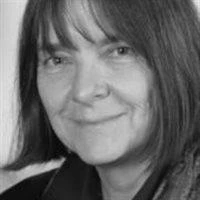
Connect
About
I am an anthropologist of economy—especially indebtedness and advice—doing research in South Africa and the UK. In my 2025 book Clawing Back: A New Anthropology of Redistribution in Precarious Times, whose themes are discussed in my 2025 Firth Lecture, I explore how people in both these countries patchwork together a livelihood from the triad of debt, wages and welfare, showing the crucial role of advisers, law clinics and small-scale brokers in helping people to gain (or keep hold of) what they feel is their rightful share. The book takes up and expands on themes from several earlier projects. One was my work with South Africa’s human rights NGO Black Sash, Stellenbosch University Law Clinic and the National Financial Ombud scheme, to train people about their rights in the face of that country’s ‘advantage to creditor’ legal culture. We produced two collaborative reports: Social Grants: challenging reckless lending (2020) and Collaborations to curb indebtedness (2024). Another was an ESRC-funded project, with a Europe/UK focus, entitled , which investigated significant shifts in respect of who receives assistance and who funds and arranges it (where the targets of welfare and benefits were the poor or destitute, they now include those who work but cannot make ends meet, and who experience increasing numbers of complex problems for which they need help). Finally, Clawing Back takes further the findings of my 2015 Money from Nothing: Indebtedness and Aspiration in South Africa, winner of the 2016 Fage and Oliver prize, which explores the dynamics surrounding South Africa's national project of financial inclusion--dubbed ‘banking the unbanked’—that aimed to extend credit to black South Africans. The book shows how access to credit by people in these newly-included sectors of society, while helping realize projects of upliftment, also produced new forms of oppression and disenfranchisement in place of older ones.
Similarly concerned with restorative justice and reversionary legislation, Gaining Ground? Rights and property in South African land reform (2007) shows how discourses about the ownership, use, and governance of land reveal contradictory understandings of custom, community and citizenship. A related book, with a comparative remit, is The Rights and Wrongs of Land Restitution: ‘restoring what was ours’. (2009).
More broadly, I am interested in comparative insights into the state, law, civil society, religion and culture in postcolonial settings. I was co-editor of a 2003 volume—An Apartheid of souls: Dutch and Afrikaner colonialism and its aftermath in Indonesia and South Africa —exploring these topics. Delving into the relationship between anthropologists' ethnographic investigations and the lived social worlds in which these originate, I was co-editor of Culture Wars: Context, Models and Anthropologists' Accounts (2010). My earlier research focused on ethnicity, migration, and musical performance: Songs of the Women Migrants: Performance and identity in South Africa (1999) showed how women migrants from the Northern Province defined themselves as ethnic subjects through song and musical performance.
Expertise
South Africa; the UK; Advice; Aspiration and indebtedness; Civil society; Citizenship and the state; Economic anthropology; Ethnomusicology; Land reform and property regimes; Migration and ethnicity